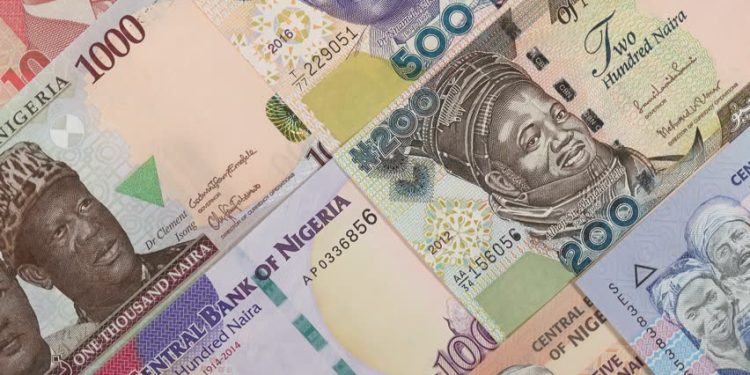The currency of Africa’s largest economy has been on a downward trajectory since the beginning of the year 2022. It has lost about N85 or 15 percent of its value as it dips to N650/$1 (as of Friday, July 22, 2022) in the parallel market. This loss in value of the currency is due to excess demand for the dollar and the general shortages of the greenback in the foreign exchange market.
As of Friday, 22 July 2022, the naira hits a new all-time low of N650 against the dollar at the unofficial parallel market. Also, in the Investors and Exporters (I&E) Window the exchange rate fell by 0.47 percent week-on-week to close at N426/$1 as of the end of trade yesterday, according to data from FMDQ.
In 2022, the exchange rate policy observed is such that is focused on maintaining the official exchange rate artificially stable through foreign exchange restrictions and administrative measures. We have seen the CBN maintain a complete restriction of FX supply to import about 45 products, and firms also lament about the limited FX supply availability for other imports.
Despite the increased oil revenue, the CBN’s FX supply in the I&E window does not still match up with demand. This limited FX supply in the official market partly led to the surge in the demand for the dollar in the parallel market, thereby causing the naira to slump as demand of the greenback weighed over the supply.
The foreign exchange policy of the Central Bank of Nigeria (CBN) has been the adoption of a managed float regime as the apex bank of Nigeria has foreclosed the possibility of adopting a clean float foreign exchange management.
The increasing foreign exchange scarcity in the parallel market led to a consistent fall of the naira in the parallel market, widening the premium between the rates In the official and black markets. This creates room for the activities of speculations which negatively impacts the market. Today, the naira stands at about N650/$1 at the black market while at the official market, as of Thursday, July 21, it closed at N426/$1 (according to data from FMDQ). This represents an N224 exchange rate premium btween the two markets.
Timeline of the CBN’s Exchange Rate Management in 2022
According to the June 2022, Nigeria development Update by the World Bank the CBN’s exchange rate policy in 2022 includes
- CBN announces that it will stop sales of Forex to banks by end of 2022.
- CBN introduces the RT200 Non-oil export proceeds repatriation scheme to reduce exposure to volatile sources of Forex and promote sustainable inflow of forex over the next 3–5 years.
What Are Operators Saying?
Our analysts interviewed some BDC operators and FX marketers in Lagos to know the reason for the steady depreciation in the value of the naira against the dollar, particularly in the parallel (black) market. Operators believed that the sharp decline in the value of the naira against the dollar in the parallel market was a result of the inefficient supply of the greenback to service the increasing demand in the market.
- According to Mr. Ogunsusi Akinyemi, head of operations at Sonora Capital, “funds are no longer accessible as they used to be, with CBN restricting banks from giving out the dollar. This excess demand overwhelms the parallel market”.
- Also, Mr. Akinwale Omodele, an operations officer at Sonora Capital and Investment Limited stated that “the decline in the value of the naira against the dollar in the black market is as a result of pressure caused by increasing demand for dollar which is accompanied by shortages of the dollar in the market.”
Nigeria’s exchange rate conundrum would most likely persist despite the management of foreign exchange because of limited effort in transitioning the country from an import-dependent economy to a productive one.
The surge in importation bills and more demand for foreign exchange will likely continue for some time given the rising price levels globally.









